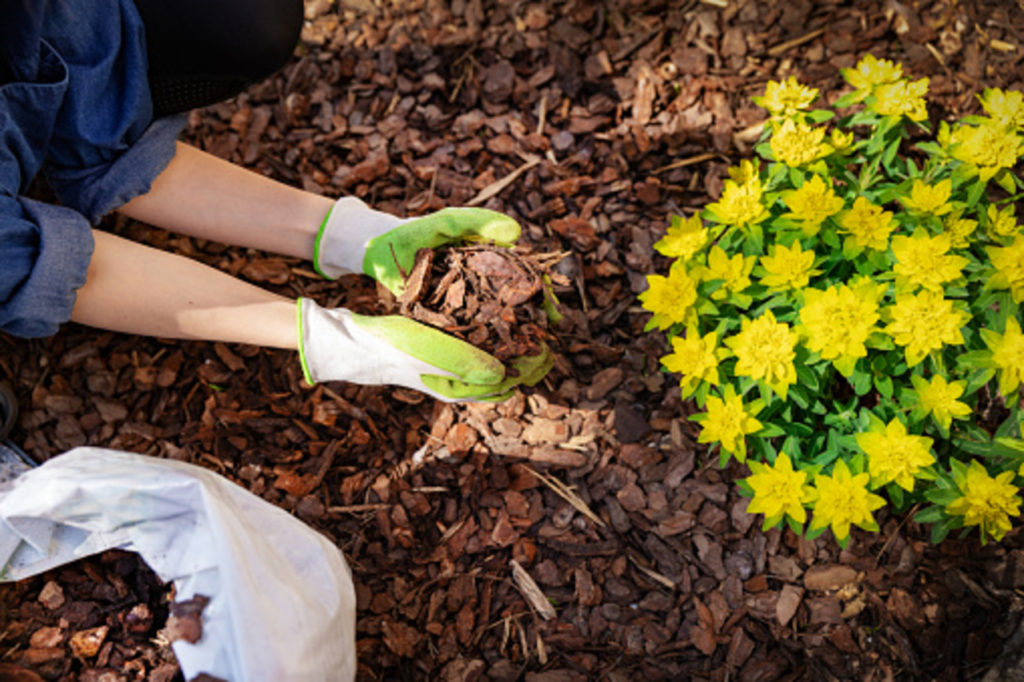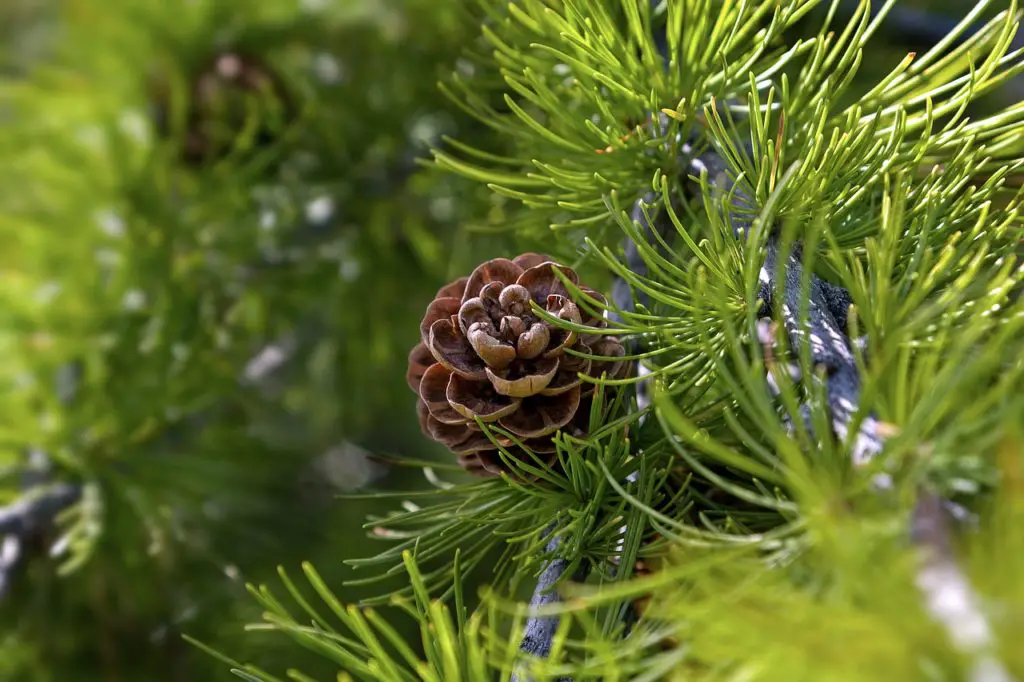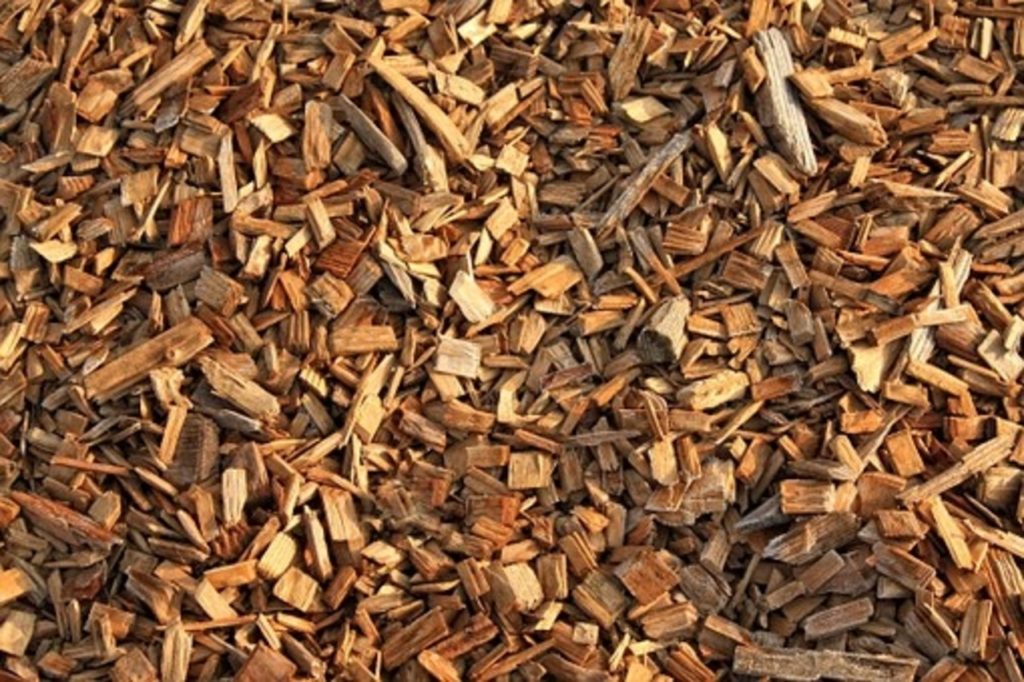Rubber mulch is advertised as a safe, effective, and permanent material for landscaping. Initially, rubber mulch seemed like an environmentally friendly option for recycling tyres.
On the contrary, in-depth research shows that it’s not as effective in controlling weed (long-term), nor is it environmentally safe. Maybe recycling tyres is an essential environmental aspect, but we’re not supposed to pollute the environment while at it.
So, does rubber mulch kill plants?
Rubber mulch has long-term detrimental effects on plants. It disintegrates and leaches heavy metals such as zinc, selenium, molybdenum, chromium, and aluminum to the soil. Additionally, it leaches PAHs (polyaromatic hydrocarbons) and MBT (2-mercaptobenzothiazole), which adversely affect plants in the long run.
Here’s a detailed breakdown of the effects of rubber mulch on plants:
Does Rubber Mulch Kill Plants?
As rubber mulch degrades, the tire composites release a combination of harmful chemicals that kill or harm your plants. The chemicals also pose a threat to aquatic life and drinking water channels.
In addition, the remains of steel strands from the tyre processing cause harm to the animals using the plants as their nesting space. Most vegetables mulched using rubber accumulates high zinc levels, which sometimes leads to their death.
Other metals in the degrading rubber mulch accumulate in the fruits, leaves, or roots, depending on the plant species. Soil containing more acidity is more susceptible because there are chances of more metal content available for uptake by plants.
Advantages of Rubber Mulch to Plants
Rubber mulch has been around for a long time, and there’s still a debate on whether it’s safe around plants. Let’s look at some of its positive impacts on plants:
It Protects Plants From Weeds and Insects
Because rubber mulch is inorganic, it becomes unattractive to pests. Thus, it doesn’t offer the right environment that weeds can thrive in. Rubber mulch causes any potential weeds or insects to die before they thrive. On the other hand, wood and other organic matter such as grass clippings, leaves, or sand become food and home to rodents and insects.
Rubber Mulch Protects the Soil by Insulating It
Even when there’s extremely cold weather, rubber mulch helps protect plants from the cold by keeping them warm in the roots. Also, the mulch does a great job of protecting the roots and soil from very high temperatures.
It Increases the Effectiveness of Water and Fertilizer
Since rubber mulch doesn’t absorb fertilizers and water like organic mulches, your soil and plants receive maximum nutrients. Furthermore, the soil beneath the rubber mulch stays moist, allowing plants to thrive.
It Helps Neutralize the Soil Alkalinity with Zinc
Alkaline soil has low infiltration levels, which means it needs zinc for the proper growth of plants. Thus, rubber mulch adds its zinc content to the soil and is especially beneficial to plants with long roots. Therefore, the plants get zinc and all the required fertilizer.
Why Does Rubber Mulch Kill Plants?
Some of the reasons why rubber mulch kills plants include:
It’s Toxic
Rubber mulch, over time, breaks down due to environmental attributes such as fungi, bacteria, and sunlight. The breaking down leads to the leaching of heavy metals. These metals are anything but harmless. Therefore, the chemicals released become harmful to plants and humans alike.
Rubber Mulch is Destructive
Vegetation mulched using rubber mulch may absorb high zinc levels, sometimes leading to their death. Other components in disintegrating rubber may also accumulate in the plant’s fruits, leaves, and roots, depending on its species. Soil with high acidity levels is more sensitive because it contains more metals that the plants can take up.
Hence, decomposing rubber mulch offers a constant supply of toxic material to even aquatic life.
It’s Flammable
Rubber mulch contains petroleum products compared to other mulches, making it highly flammable. It, therefore, means that if the mulch catches fire, your plants are at great risk.
Which Are the Best Mulches to Use To Prevent Killing Plants?
Here’s a list of some of the best mulches to use in your vegetable garden:
Coco Husk Chips
Coconut husks mulch is a 100% organic, eco-friendly, and bio-degradable mulch that protects your plants from weeds. Also, coconut husks mulch is a perfect alternative to mulches from tree bark. The mulch doesn’t wash away, allows good airflow, and deters weed growth.
Another advantage of this mulch is that it absorbs water well, slowly releasing it to the plants. It’s also a great choice for potted plants and mostly indoor use due to its smooth feel. Also, the mulch contains no chemicals or pesticides.
You’ll also love that coconut husks contain high nutrient content, are free from fungal sores and bacteria, and have a balanced pH. Consequently, coconut husks are found at a fair price and are sold in compressed bricks that increase volume as they absorb water.
Pine Straw Mulch
Pine Straw mulch performs exceptionally well with plants in vegetable gardens, and it comes from pine needles that have been let to dry. You can buy the mulch on Amazon, or you can find it in forests that contain pine. It’s an easy-to-find mulch that comes at a pretty low price.
What you’ll love about the mulch is that it stops weed growth, doesn’t get washed away, maintains great levels of soil humidity, and allows water to penetrate well into the soil. Also, it’s 100% organic and does an extraordinary job in your garden.
Besides that, it offers great aesthetics to your garden.
However, some gardeners feel that the pine straw mulch increases soil acidity levels once it decomposes, reducing soil fertility. It’s just a myth because the mulch doesn’t make the soil acidic.
Pine is acidic in its raw form, but its pH is neutral once it decomposes, so the acidity isn’t transferable to the soil. Accordingly, pines don’t cause any harm to the soil, and there’s no evidence of soil acidity in pine forests.
The soil is more acidic under eucalypts than it is with pine mulch.
Pine Bark (Mini Nuggets)
As the name suggests, pine bark is the source of this mulch. The mulch has a natural brown color that blends with the landscape well. If you don’t appreciate the look of hay that is pine straw mulch, then you’ll probably love this mulch.
Apart from its great appearance, it does a good job with your garden.
It stops weed growth, maintains good humidity levels, decomposes slowly, and doesn’t wash away with heavy rain. Accordingly, the mulch is cheap and is one of the best mulch options suitable for containers.
Cedar Shavings
This mulching option is as effective in gardening as the mulches stated above. The cedar wood where the mulch comes from originates from different cedar trees from around the world.
Some of the advantages of cedar mulch are that it protects your garden from weeds, its strong smell repels bugs and insects, and maintains good soil moisture. However, some people say that this mulch may be harmful to plants.
Fortunately, there’s no information to back up the allegations. We’ve over time seen that cedar helps in the growth of plants without causing them harm. The only thing you should do is ensure that you buy 100% natural cedar shavings. You don’t need to end up buying chemically treated mulch.
Cypress Mulch
As an organic mulch, cypress mulch can be used in your garden without causing any harm to your plants. The mulch comes from bald cypress and shredded pond cypress trees. Cypress grows in inundated, swampy, and wet soil found in several areas of the US (mainly Louisiana and Florida).
In their natural occurrence, cypress trees provide a habitat for different wildlife species. Additionally, their roots offer ponds with natural filtration for water. Unfortunately, there has been a surge in demand for cypress trees in the recent past. It has led to a decline in the trees in the forests.
Although this is a great mulching option, maybe it’s best to opt for other mulches so that you can save the cypress trees.
The Worst Mulches for Plants: Threatens Your Plants!
Here are the mulches you need to leave out of your list if you intend to have healthy plants:
Rubber Mulch
Rubber mulch contains toxic chemicals that contaminate the soil, which causes more harm than good. First, the rubber mulch is made from recycled tires. Liquid latex, sulfur, and carbon black are added to the tires in making the mulch.
Therefore, this makes the mulch very toxic to plants.
However, rubber mulch is still appealing to some people as a gardening option because it requires less maintenance. And that’s not all; they also love that it keeps off insects, maintains good humidity levels, and doesn’t rot.
It seems that rubber mulch offers the same benefits as organic mulch. The only problem is that it contains toxins harmful to plants.
Dyed Mulch
Dyed mulch is recycled wood in different colors such as black, brown, green, and red. It sounds like good mulch for plants, right? Especially now that it’s made from recycled wood, which means we are protecting the environment.
But, the sad reality is that the wood is treated with chemical substances at the initial stages of the manufacturing process. The chemicals prevent the wood from degrading and rotting.
Thus, the chemicals get to the plants and soil because there’s contamination when the mulch is used for gardening. Hence, the dye and other harmful substances affect the plants and soil.
It’s best, therefore, to avoid using dyed mulch for your gardening needs.
Compost
Various sources suggest compost as a good mulch. We tend to think differently because compost should be mixed with soil and shouldn’t be over the ground surface. On most occasions, people use compost to stop weed growth.
Mature compost offers the soil necessary nutrients for plants to grow healthy. However, compost for mulching creates a conducive environment for plants to grow and gives room to weeds.
Maybe, if you use a thick compost layer, it’ll keep the weeds from growing for a short period. But you can be sure that soon enough, the weeds pierce through and attack your garden. If that happens, the weeds won’t be the beneficiaries of the nutrients in the compost and not your plants.
Therefore, it’s recommended that you only use compost as a soil reconditioner and fertilizer and not for mulching purposes.
FAQs
Will Rubber Mulch Kill Flowers?
Research indicates that zinc from rubber mulch leeches into the ground over time, and the chemical overload kills flowers. Rubber mulch contains metal contaminants that are known to cause harm to the environment and human beings.
Does Rubber Mulch Kill Bushes?
Due to its toxic components, Rubber mulch kills lots of plant species. That’s why we’re made to understand that it impedes or retards even weeds from growing. Studies show that rubber mulch isn’t as effective as fibers such as straw. Sawdust is even seen to perform better than rubber mulch.
Is Black Rubber Mulch Safe for Plants?
Black rubber mulch contains components that are harmful to plants. It’s inorganic, doesn’t decompose or provide the soil with organic components. Zinc is the most common chemical found in rubber that affects soil and plants.
Can Flowers Grow in Rubber Mulch?
Rubber mulch discourages infestation by insects, fungi, and weeds, which cause harm to flowers, fruits, buds, roots, leaves, and the soil. Therefore, rubber mulch allows you to have beautiful, well-watered flowers throughout the year.
Is Rubber Mulch Safe for Fruit Trees?
Long-term interaction with rubber mulch shows that rubber releases harmful chemicals. It slows down fruit trees’ growth, turns leaves yellow, and increases the tree mortality rate. Therefore, rubber mulch is a less effective option than organic mulch regarding its benefits to fruit trees.
Can I Put Rubber Mulch Over Grass?
If you wish to install rubber mulch over grass, you’ll need to kill or remove all the grass before installing the rubber mulch. Consequently, apply a weed killer a week earlier before you can lay the mulch.
Final Word
Although rubber mulch is a great option for landscaping and playgrounds, it might not be the best option to use around plants. Over time, the mulch causes plants to die.
Thus, you need to consider using organic mulches to improve the health of your soil and plants. In addition, you can make mulch using garden waste from your garden, or you can purchase the waste.
The best part is that organic mulches are cheaper than synthetic mulches.


